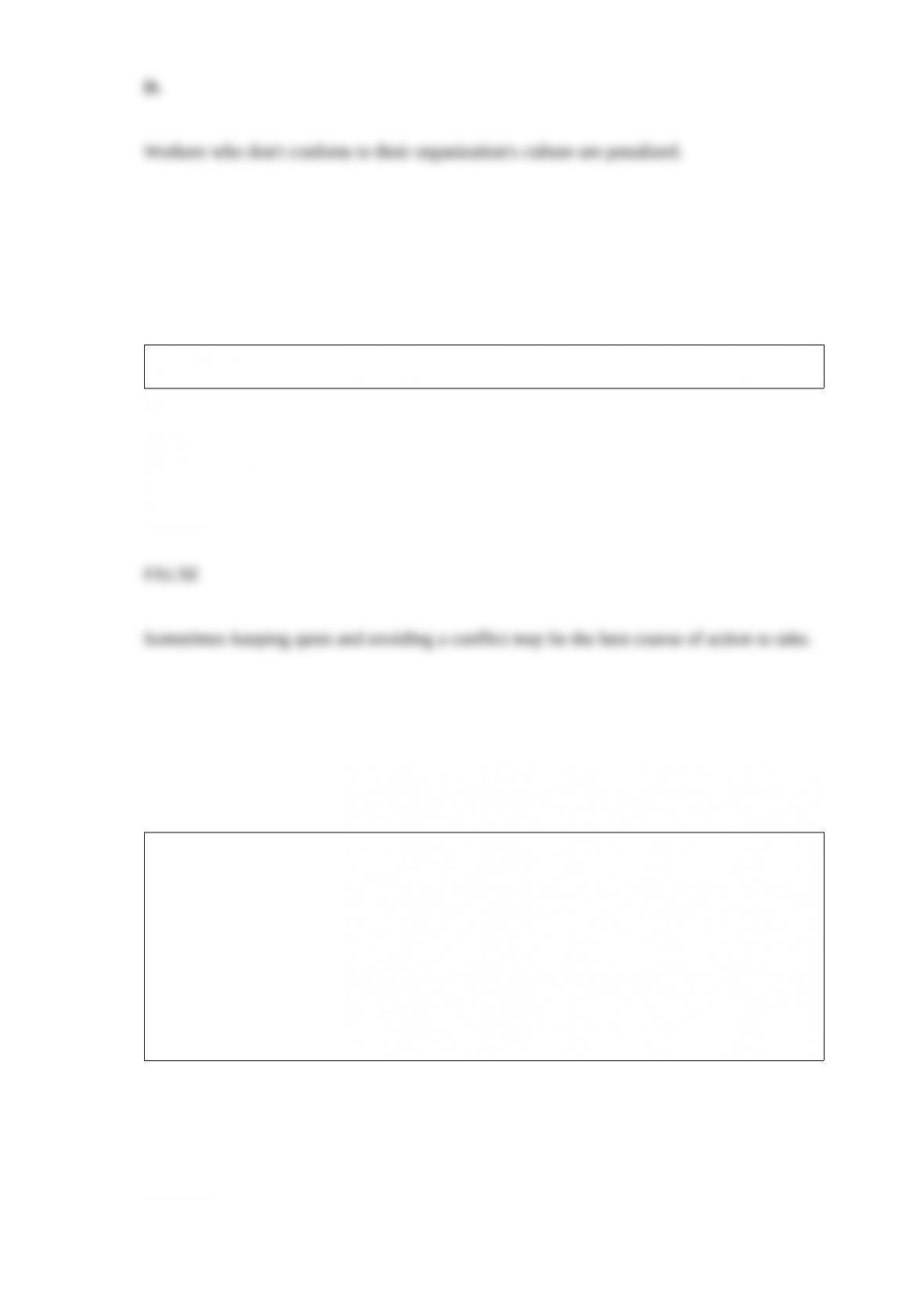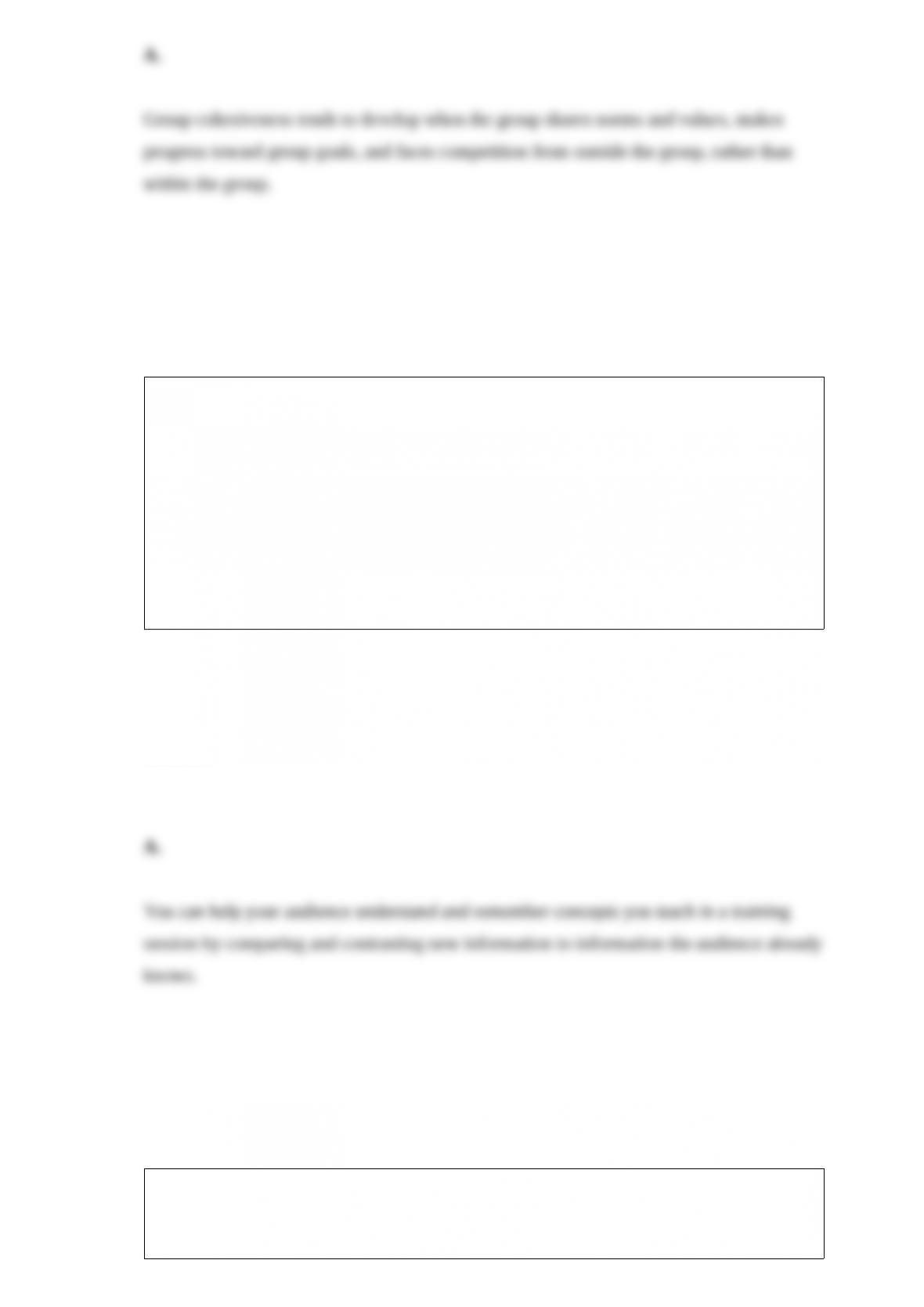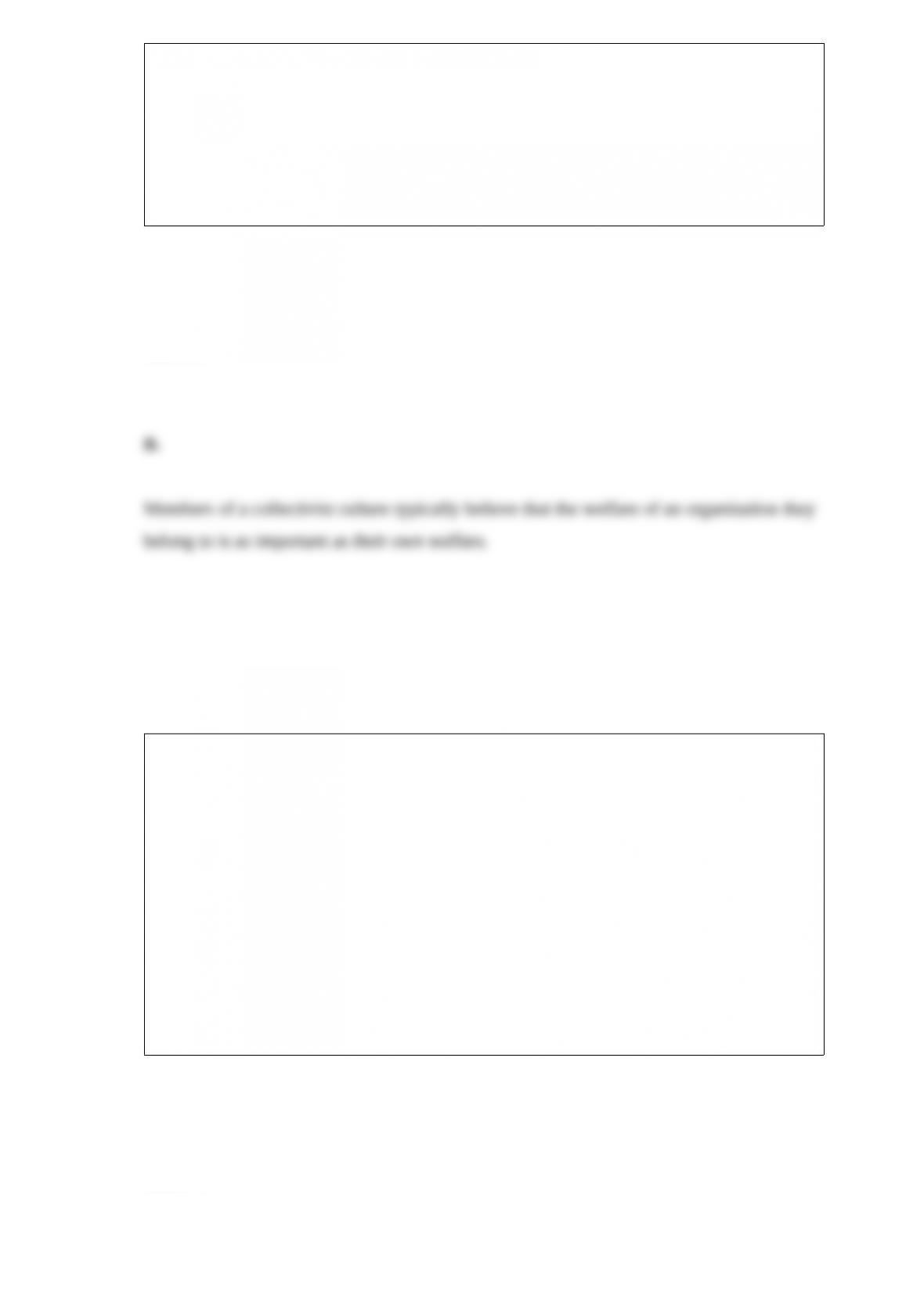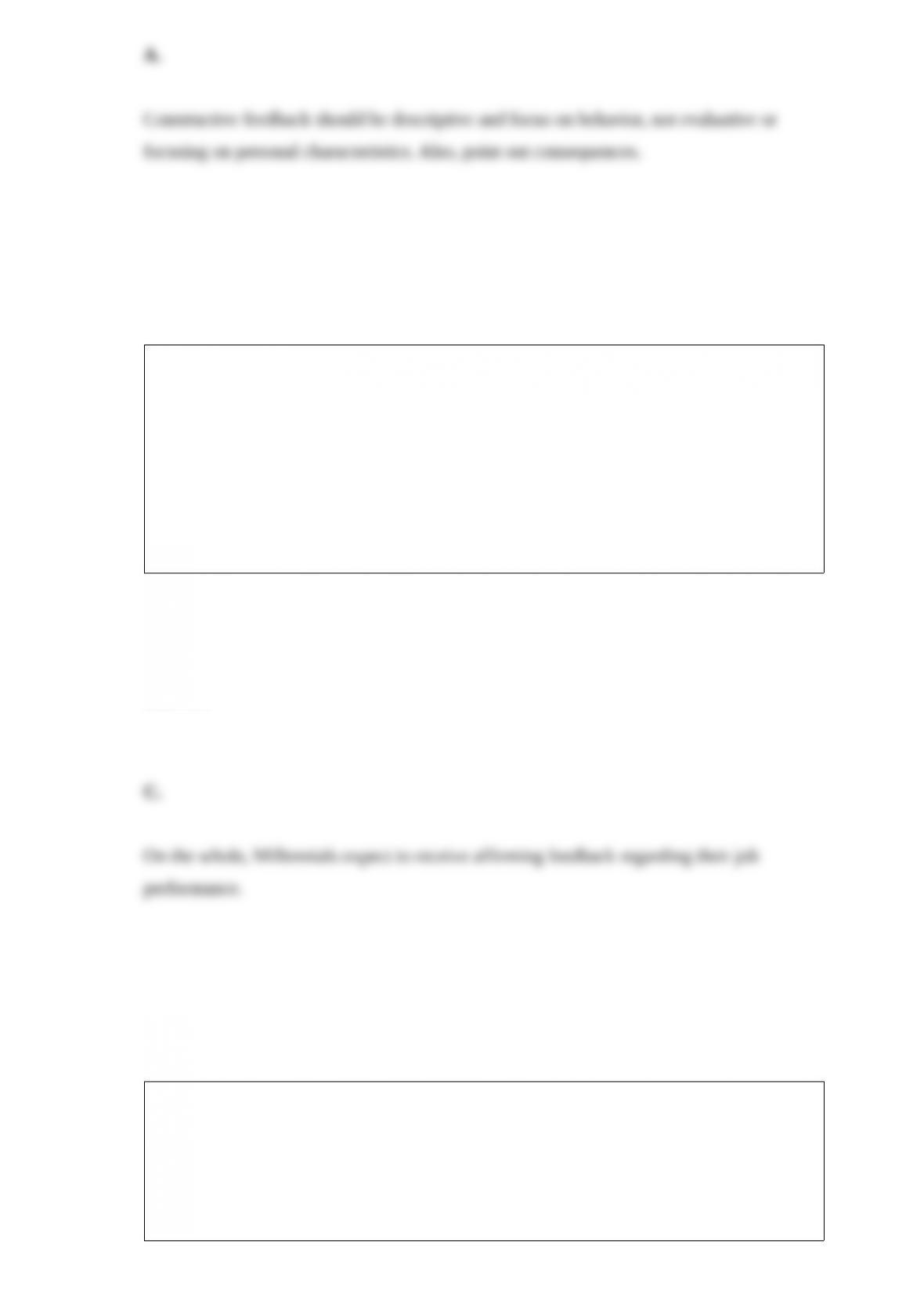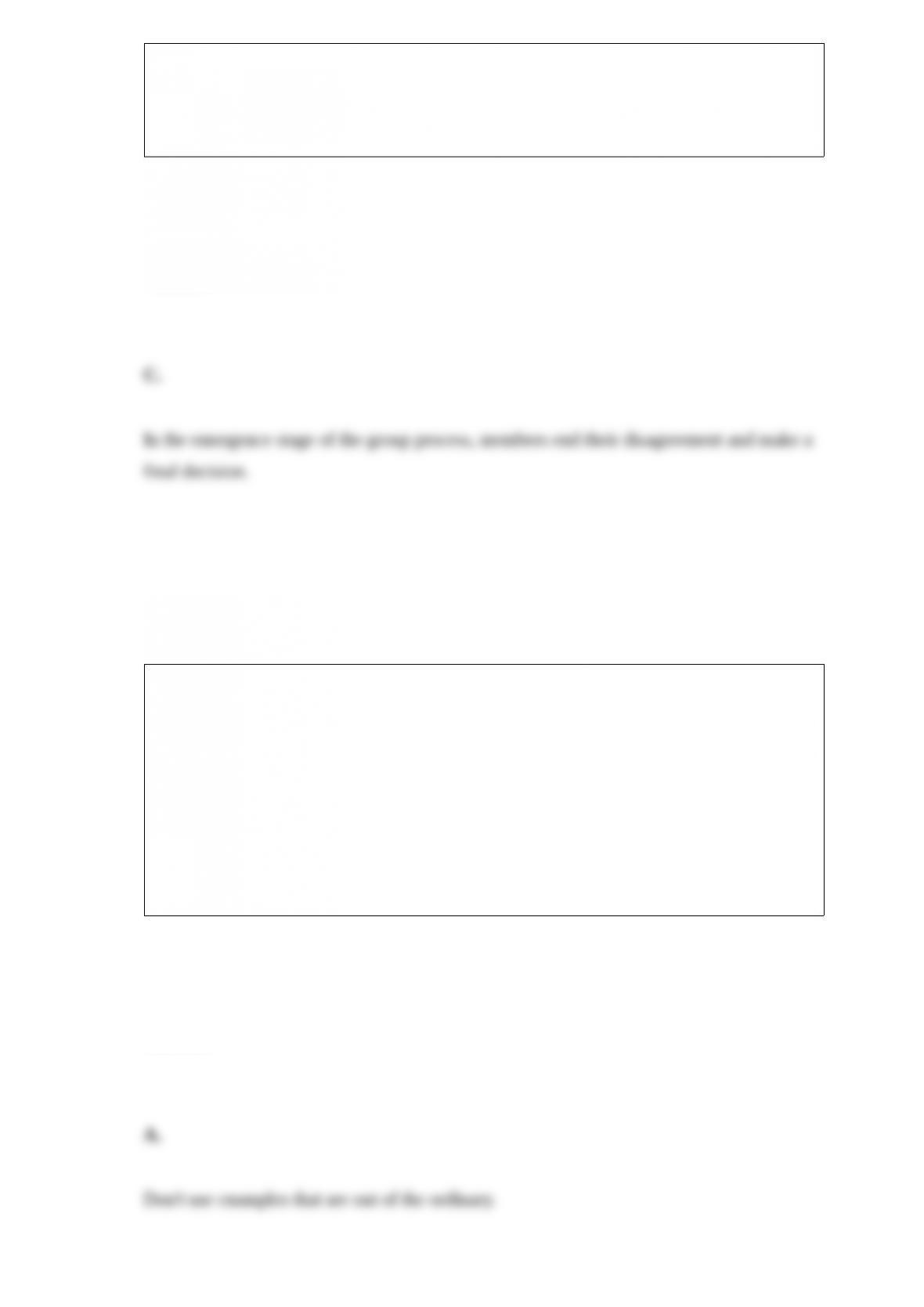B. believe that the welfare of an organization they belong to is as important as their own
welfare.
C. place their own interests ahead of community interests.
D. strive to become an organizational 'star."
Answer:
Which of the following illustrates an effective critique of a co-worker's performance?
A. "I didn't have enough advance notice to arrange my schedule to attend the meeting,
because the notice was posted only yesterday. Can you find a way to send out the
meeting date at least two weeks ahead of time?"
B. "If you're going to be inconsiderate enough to wait five days before you return my
call, don't bother. I'll go ask someone else."
C. "You sure blew it when you fouled up your presentation, right in front of our best
customer."
D. "You never help me when I need it."
Answer:





























